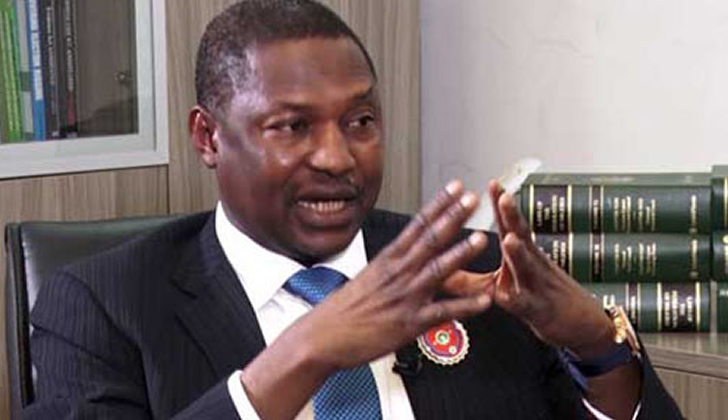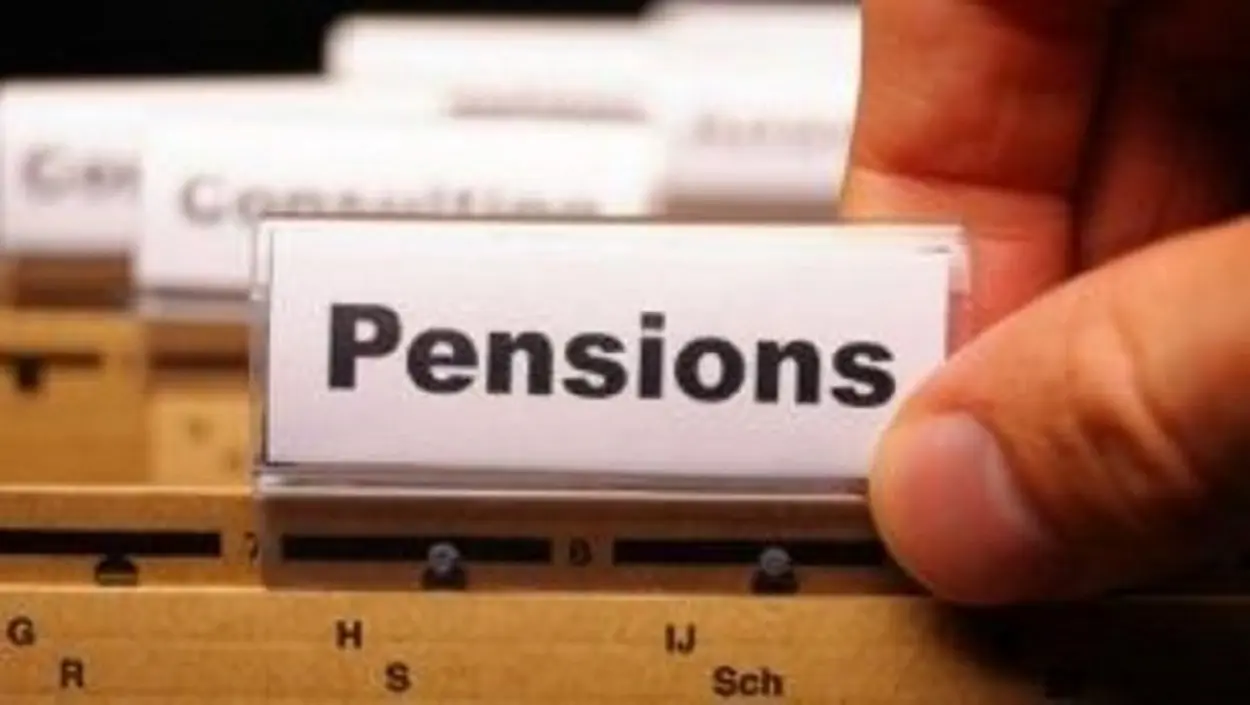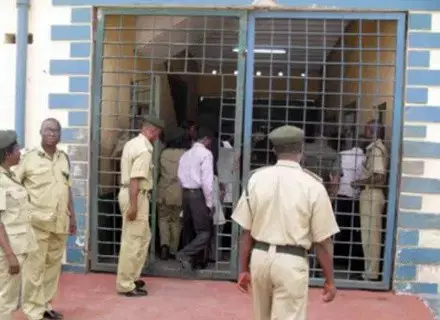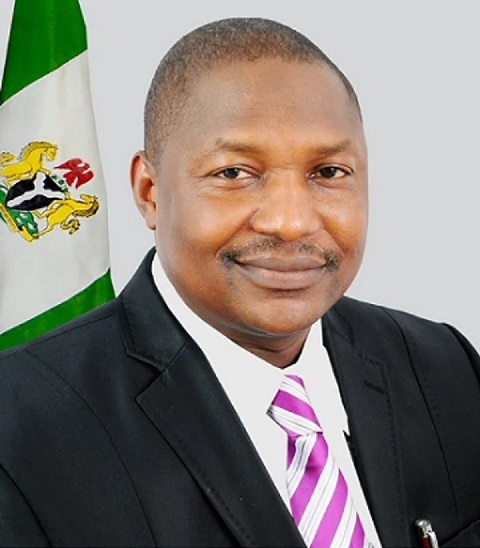COVER
Malami Admits Nigeria Can’t Win OPL 245 Court Cases

The Federal Government may be considering of dropping the court cases related to OPL 245 because of the slim prospect of judicial victory.
In a memo to President Muhammadu Buhari, Minister of Justice and Attorney General of the Federation (AGF), Abubakar Malami, advised that the termination of the cases will allow the country enjoy the economic benefits of the controversial oil block while fossil fuels are still in vogue.
Malami said the dispute and associated litigation has brought negative economic consequences for Nigeria “particularly in terms of foreign exchange earnings, loss of Tax income and Royalty payments”.
OPL 245 is believed to be Nigeria’s most endowed oil block but its development has been stalled since Buhari came to power in 2015.
His administration has been pursuing a series of litigation home and abroad against Royal Dutch Shell, Eni/Nigeria Agip Exploration (NAE), Shell Nigeria Ultra Deep (SNUD) Ltd, and Shell Nigeria Exploration Company (SNEPCO) — as well as Mohammed Bello Adoke, former AGF, over allegations of fraud and corruption in the OPL 245 deal. They all deny the charges.
In 2011, Shell and ENI paid $1.1 billion to acquire 100 percent stake in OPL 245 after Malabu, the original allottee, relinquished its interest in the acreage — but foreign anti-corruption campaigners alleged that the transaction was shrouded in corruption.
The federal government pursued both criminal and civil cases and has lost in foreign jurisdictions but the prosecution has continued in Nigeria using the same evidence that failed abroad.
The cases in Nigeria are being prosecuted by the Economic and Financial Crimes Commission (EFCC).
In his memo dated 6 February 2023, and obtained by TheCable, the AGF reminded Buhari of the string of losses Nigeria has suffered over the years in trying to prove corruption and fraud in the transaction.
“Your Excellency, recent developments, particularly the series of losses recorded in cases that arose from the facts of OPL 245 2011 Resolution Agreements in different jurisdictions, should be concerning. These losses include:
“Judgment of the UK Courts delivered on 22 May 2020 declining jurisdiction in a case filed by FGN against Shell/SNUD and ENI asking for compensation in the sum of $1.1 billion in relation to their conduct in the OPL 245 2011 Resolution Agreements;
“Judgment of the Italian Constitutional Court dated 17th March 2021, in the Prosecution of NAE in Milan, Italy for international corruption allegedly connected with OPL 245 2011 Resolution Agreements which was concluded in favour of ENI;
“Judgment delivered by the UK Court in June 2022, the FGN lost its $1.7 billion claim against JP Morgan Bank over transfers of proceeds from the sale of OPL 245 pursuant to the OPL 245 2011 Resolution Agreements.
“The US Department of Justice previously investigated the OPL 245 2011 transaction and announced in October 2019 that it was closing the case.
“In April 2020, the US Securities and Exchange Commission also closed investigation into the controversial OPL 245 deal after it could not prove fraud or corruption.”
Malami noted that upon the conclusion of the case in Milan in March 2021, Buhari — with advice from the Nigerian Upstream Petroleum Resources Commission (NUPRC) and the office of the AGF — granted consent to convert the oil prospecting licence (OPL) to an oil mining lease (OML) for NAE to commence production.
He recalled that Timi Sylva, then-minister of state for petroleum resources, wrote to ENI in May 2022 to convey Nigeria’s readiness to resolve all the issues but the assurance “remains ineffectual as long as Charge CR: 151/2020 against ENI in Nigeria being prosecuted by EFCC remains in Court,” Malami wrote.
In his assessment of the current situation, Malami wrote: “In sum, Mr. President is invited to note that: “(a) OPL 245 is the most priced Oil block in the country.
“FGN has gained certain benefits from SNUD/NAE/ENI in respect of OPL 245. In particular, SNUD/NAE/ENI have made payments to FGN and also expended resources thereon including:
“Cumulative total of $210 million Signature Bonus. Approximately $500 million committed by SNUD into the development and de-risking of OPL 245. Payment of $1,092,040,000.00 to Malabu as consideration for the OPL 245 2011 Resolution Agreements. Litigation cost of prosecuting the several Suits connected with the subject matter in various jurisdictions.
“By allowing SNUD alter its position in the sums stated in (b) (I) to (IV) above, and without getting a corresponding value for same over time through FGN’s Policy summersault, litigation and disputes, Nigeria could reasonably be portrayed as an unfriendly investment destination whose credibility is suspect.
“FGN’s actions which denied SNUD/ENI/NAE the opportunity to exploit OPL 245 led to ENI’s International Arbitral Proceedings against FGN claiming $1.3 billion plus interest and arbitration costs. (No: Case No. ARB/20/41/).
“The controversies and litigations, particularly the pending charge No CR/ 151/2020 filed by the EFCC against NAE/ENI and others has placed encumbrance on the ability of FGN to enjoy the financial benefits associated with the exploration OPL 245 with attendant economic losses to the Nation.
“Judicial determinations in Milan & UK, and administrative decisions in the USA, all favourable to ENI/NAE, together with the Consent Judgment earlier entered to which FGN was a Party makes it a more beneficial approach for FGN to consider settlement of charge No: CR/151/2020 as the best option in the circumstances.
“Whilst the dispute and associated litigation cum Arbitration lasted, neither SNUD/NAE nor even FGN would exploit OPL 245 with negative economic consequences for FGN and the people of Nigeria particularly in terms of foreign exchange earnings, loss of Tax income and Royalty payments.
“A careful review and evaluation of the Charge No CR: 151/2020 pending at the FCT High Court, particularly the three counts against ENI/NAE, SNUD & SNEPCO leads to an almost inevitable conclusion that the Charge does not disclose sufficient evidence to excite any prospect of success in the case.
“It is in the best interest of the Federal Government and Peoples of Nigeria, to resolve all issues connected with OPL 245, especially the commercial issues, by discontinuing the pending charge No CR/151/020, and to expedite the process of converting the OPL to an OML for ENI/SNEPCO thereby taking advantage of the fast-disappearing opportunities in the oil exploration industry, and attracting other high-net worth investors that will provide the resources much needed in the Oil industry and by extension our economy at this time.
“(j) The above conclusion is consistent with my earlier letter dated 27th September 2017 ref: DPPA/FMPR/198/ 17, which position was supported and re-established by Dr. Emmanuel Ibe Kachikwu and Chief Timipre Sylva in their letters dated 13th December 2017 ref: MPR/STAHMS/S.26/18, and 27th May 2022 respectively.”
The AGF asked the president to allow the cases to be terminated for progress to be made.
“In view of the foregoing, and if deemed appropriate, Mr. President may wish to:
“Direct the discontinuation of counts 2, 3, & 13 in Charge No CR: 151/2020 pending at the FCT High Court particularly the counts against ENI/NAE, SNUD & SNEPCO.
“Direct the total discontinuation of all investigations by all Law Enforcement Agencies, particularly, EFCC, involving ENI/NAE, SNUD & SNEPCO in relation to OPL 245.
“Direct the NUPRC and any other relevant Agencies to expedite the conversion of OPL 245 to an OML in furtherance of the Ministerial Consent granted via the letter dated 16th May 2022 ref PRES/88/MPR/90.
“Approve the settlement of all Civil cases between FGN and ENI/NAE, SNUD & SNEPCO in relation to OPL 245.
“Approve that the Attorney-General of the Federation and Minister of Justice exercise his powers under Section 174(1)(c) of the 1999 Constitution of the Federal Republic of Nigeria (as amended) to discontinue the case against NAE/ENI, SNUD & SNEPCO PROVIDED NAE/ENI, SNUD & SNEPCO equally agree to discontinue the Arbitration Proceedings against FGN on the grounds that FGN’s delay in converting the OPL 245 to an OML is a breach of Nigeria’s obligations under the relevant Treaties, and to hold FGN harmless in respect of all claims concerning OPL 245,” he wrote.
TheCable understands that while Buhari may be disposed to resolving the issues before leaving office, the fate of Mohammed Abacha remains an issue.
As previously reported by TheCable, the final resolution depends on a proposal by the EFCC for a compensation to Abacha by ENI.
Abacha is laying claim to the ownership of Malabu Oil & Gas Ltd, the company awarded OPL 245 in 1998 by Sani Abacha, his father and then-military head of state.
He alleged that the ownership documents of the company were illegally altered, thereby denying him benefits from the $1.1 billion paid by Shell and ENI to acquire Malabu’s interest in the oil block.
The EFCC objected to the proposal to convert the OPL to OML and for the court case to be discontinued, saying it “did not consider the interest of the actual shareholders of the Malabu Oil and Gas Limited (Mohammed Sani Abacha and Pecos Energy Limited) culminating in the various litigations regarding OPL 245. This action has globally undermined the image of the Federal Republic of Nigeria”.
TheCable learnt that EFCC is proposing that ENI should set aside $500 million from the proceeds of production to compensate Abacha.
In a case filed in court by the EFCC against Malabu, Shell, Eni, Adoke, Aliyu Abubakar, Etete, and Rasky Gbinigie (Malabu’s company secretary), the anti-graft is alleging that they colluded to remove Abacha’s name as a director of Malabu.
According to reports, a man named “Mohammed Sani” originally had 50 percent in the company, with “Kweku Amafegha”, believed to be a pseudonym for Etete, owning 30 percent; and Wabi Hassan, the wife of Hassan Adamu, Nigeria’s then-ambassador to the US, was credited with owning 20 percent.
Mohammed Abacha, who is EFCC’s key witness, told the court that he was the “Mohammed Sani” but admitted that he did not pay for the shares either in cash or by any other means.
Court Declares Ararume’s Sack as NNPCL Chairman Illegal
The Federal High Court, Abuja has declared the sack of Sen. Ifeanyi Ararume by the Federal Government as Non-Executive Chairman of the Nigeria National Petroleum Company Limited (NNPCL) as illegal and unlawful.
Delivering judgment in the matter yesterday, Justice Inyang Ekwo, said that his removal was unconstitutional and as such the court restored him as the Non- Executive Chairman of the company with full benefits.
The judge also awarded N5 billion against the federal government and NNPCL in favour of Ararume as damages for what he suffered on account of the wrongful sack and disruption of his appointment.
Justice Ekwo ordered that Ararume be immediately restored to office as non Executive Chairman of the NNPCL.
The court also declared as null and void and set aside all decisions that were taken by the Board of Directors of the NNPCL after Ararume’s sack.
The court said that the government acted ultra vires, wrongful, illegal, null and void in the way and manner Ararume was sacked after using his name to register the company.
Justice Ekwo in the judgment agreed that under Section 63 of the Company and Allied Matters Act, (CAMA), the president was vested with powers to remove directors of the organization but held that the powers were not at large.
The judge said that the law clearly stipulated conditions under which directors of the NNPCL could be sacked, adding that a breach of the stipulated conditions would automatically make any purported sack unlawful.
In the instant case, the judge said that the federal government’s letter of Jan. 17, 2022 signed by Secretary to the Government of the Federation (SGF), did not give any reason why Ararume was removed.
The court said that the issue of contract fraud raised in the processes filed by the NNPCL casting doubts on the character, integrity and reputation of Ararume was an afterthought as such facts were not adduced in the letter that removed him.
Justice Ekwo said it was bad enough that the NNPCL claimed to have obtained the alleged contract fraud against Ararume from an on-line media, adding that no probate value could be attached to such information by any court.
The judge said even if the allegations were to be made in the proper way, the plaintiff would have been confronted with same and be allowed to defend himself as required by law.
He added that anything short of that amounted to denial of fair hearing which he said was against natural justice.
The judge restrained the government from removing Ararume as a director of the NNPCL and that his name must also not be removed as Non- Executive Chairman of the organisation.
Ararume dragged the federal government to court praying it to declare his removal as NNPCL chairman illegal, unlawful and unconstitutional.
He also asked the court to declare that it was a total breach of the Company and Allied Matters Act (CAMA) under which NNPCL was incorporated.
Besides asking the court to issue an order to return him to office, Ararume demanded N100 billion as compensation for the damages he suffered nationally and internationally by the unlawful way and manner he was sacked.
The suit marked FHC/ABJ/CS/691/2022 was instituted on his behalf by a group of Senior Advocates of Nigeria (SANs) comprising Messrs Chris Uche, Ahmed Raji, Mahmud Magaji, James Onoja, K.C Nwufor and Gordy Uche.
Ararume had prayed for an order of the court setting aside his removal vide a letter of Jan. 17, 2022 with reference number SGF.3V111/86.
He also sought an order of court reinstating him and restoring him to office with all the appurtenant rights and privileges of the office of the NNPC non Executive Chairman.
He further demanded for the nullification and setting aside of all decisions and resolutions of the NNPC Board made in his absence from Jan. 17, 2022 till date and another order restraining the defendants from removing his name as director of the company.
Earlier, the judge refused to acknowledge the presence of Mr Ibrahim Shafi who announced his appearance on behalf of NNPCL.
“I will not record your appearance because you walked out of the court.
“I will only record your appearance by leave of court because the court is not a market place where you walk out and return at will,” the judge said.
COVER
FG Disburses N5.12bn Pension Arrears to 90,689 DBS Pensioners

By Tony Obiechina, Abuja
The Federal Government has released funds for the disbursement of N5.12 billion in pension arrears to 90,689 Defined Benefit Scheme (DBS) pensioners under the Pension Transitional Arrangement Directorate.This was contained in a statement by the Head of Corporate Communications of PTAD, Olugbenga Ajayi.
He said that the directorate had finalised the disbursement of the money. The Nigeria Customs Service, the Nigeria Immigration Service, and Prisons Pension Department (CIPPD) pensioners are 8,626, received N276,032, for one-month arrears; the Police, Pension Department (PPD) pensioners are 9,681, received N619,584, for two months as arrears. The Civil Service Pension Department (CSPD) pensioners are 12,773, received N408,736, for one-month arrears, and the Parastatals Pension Department (PAPD) pensioners are 59,609, received N3,814,He said that the payment reaffirms the administration’s commitment to ensuring that pensioners receive their due entitlements in line with the Renewed Hope Agenda of President Bola TinubuAccording to the statement, the approvals align with the President’s Renewed Hope Agenda.“This move shows President Tinubu’s strong commitment to senior citizens’ welfare and marks a new era in DBS pension management,” said PTAD, Executive Secretary, Tolulope Odunaiya.Among the key measures is the immediate implementation of an extra budgetary allocation to enforce new pension rates for DBS pensioners.The President also endorsed the adoption of a proposed pension harmonisation policy, which will be incorporated into the 2026 pension budget. Additionally, health insurance coverage for all DBS pensioners has been approved, ensuring access to essential healthcare services.The proposed reforms include a new pension rate of N32,000 and incremental increases of 10.66% and 12.95% for pensioners from defunct and privatised agencies. Other components of the reform package include harmonisation of pension rates across all DBS pensioners and their enrolment into the National Health Insurance Scheme (NHIS).In June, PTAD announced the successful disbursement of N8.6 billion in pension arrears to 148,625 eligible DBS pensioners across various sectors. The payments reflect the implementation of the N32,000 pension increment approved by President Tinubu in 2024.PTAD had previously settled arrears related to the first pension increment of 20% to 28%, which came into effect in January 2024.COVER
NAF Offensive Decimates 592 Terrorists, Destroys 372 Assets in Eight Months

By David Torough, Abuja
The Nigerian Air Force (NAF) has killed no fewer than 592 terrorists and destroyed 372 enemy assets in Borno within the last eight months, surpassing the total operational gains recorded in 2024.A statement by NAF’s spokesman, Air Commodore Ehimen Ejodame yesterday said the Chief of the Air Staff (CAS), Air Marshal Hasan Abubakar, said this during a courtesy visit to Gov.
Babagana Zulum of Borno. Abubakar said the offensive had destroyed 206 technical vehicles and 166 logistics hubs in deep hostile territory, with coordinated day-and-night strikes from Gonori to Rann, Dikwa to Damboa, Azir to Mallam Fatori.He said the offensive had been boosted by the deployment of A-29 Super Tucano aircraft capable of precision and night missions, Mi-171 helicopters for medical evacuation and logistics, and enhanced intelligence, surveillance and reconnaissance platforms for round-the-clock target tracking.He added that a new Mi-35 gunship was expected to further intensify close-air support for ground troops in the theatre.“Backed by an upgraded fleet and precision night-strike capabilities, NAF aircraft executed 798 combat sorties, clocking over 1,500 operational flight hours in the Air Component of Operation Hadin Kai.“This year, our air war is faster, sharper, and more surgical.“We are taking out high-value targets, crippling their logistics, and hunting down every cell that threatens the peace of the North-East,” he said.The CAS also praised the “Borno Model” of combining community-driven non-kinetic measures with decisive military action, saying it had proven effective in the counter-insurgency campaign.He also inspected facilities at the NAF Base, met with aircrew and ground personnel, and received operational briefings.He reaffirmed the NAF’s commitment to precision air power, intelligence-led operations, and inter-agency collaboration to protect Nigerians.In his response, Gov. Zulum praised the NAF for its sustained air support in degrading terrorist capabilities and protecting communities.According to him, the NAF has been a steadfast partner in their fight against insurgency.“Your operations have saved countless lives and allowed our communities to begin rebuilding.“The people of Borno recognise your sacrifices and stand firmly behind you,” he said.COVER
Over 8,000 Mentally ill Inmates in Custody Nationwide, Says NCoS

By Divine Ndukwe, Abuja
The Nigerian Correctional Service (NCoS) has disclosed that at least 8,246 inmates across the country’s custodial centres are living with mental health conditions.Assistant Controller General of Corrections in charge of Medical Services, Dr.
Glory Essien, revealed the figures yesterday in Abuja during the third public hearing of the Independent Investigative Panel on Alleged Corruption, Abuse of Power, Torture and Other Inhumane Treatment by the NCoS. Essien described incarceration as a deeply stressful experience, noting that the loss of freedom can trigger or worsen mental health conditions. She explained that inmate-leaders are trained to identify and report cases of psychological distress for early intervention, but available resources remain insufficient.“If you’re in a facility housing 500 to 1,000 inmates, with just one doctor or psychologist, monitoring everyone individually is impossible,” she said, citing logistical and funding challenges that hamper adequate care.Similarly, the NCoS Assistant Controller General in charge of Pharmaceutical Services, Mohammed Bashir, acknowledged that drug shortages and limited staffing remain major obstacles despite government funding.He revealed that a psychological services unit has been established, partnering with psychiatric associations to visit major facilities, though resources still fall short of demand.Permanent Secretary in the Ministry of Interior, Dr. Magdalene Ajani, called for urgent private sector support, stressing the need to deploy more psychiatric professionals to underserved states. “Please come to Macedonia and help us,” she appealed to the Nigerian Medical Association and pharmaceutical companies.Meanwhile, in Kwara State, the Nigerian Medical Association (NMA) has expressed alarm over rising mental health issues among doctors, linking the trend to burnout, workplace violence, and poor working conditions.Kwara NMA Chairman, Prof. Olushola Abdulrahman Afolabi, said a significant proportion of doctors experience depression, anxiety and other psychiatric disorders, often without seeking help due to stigma.Former NMA chairman, Prof. Issa Baba Awoye, warned that current figures could be worse than past studies, especially in resource-poor settings.The NMA is advocating for mandatory mental health evaluations for doctors, alongside increased awareness and stigma reduction campaigns. “Our healthcare system can only be as strong as the mental and physical well-being of those who sustain it,” Afolabi stated.Both the NCoS and NMA agree that mental health care must be prioritized, not just for inmates, but for those tasked with caring for the nation.

























